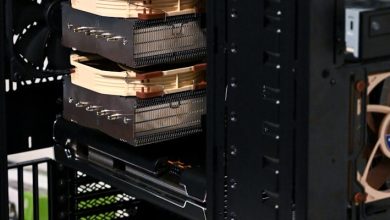Using Hardware Wallets to Secure Your Crypto Assets

- Understanding the Importance of Hardware Wallets in Crypto Security
- Benefits of Storing Your Crypto Assets in Hardware Wallets
- Comparing Hardware Wallets: Which One Is Right for You?
- Step-by-Step Guide to Setting Up and Using a Hardware Wallet
- Tips for Safely Managing Your Crypto Assets with Hardware Wallets
- The Future of Crypto Security: How Hardware Wallets Are Evolving
Understanding the Importance of Hardware Wallets in Crypto Security
In order to truly secure your cryptocurrency assets, it is crucial to understand the importance of hardware wallets. These physical devices offer an extra layer of security that cannot be matched by software wallets or exchanges. By storing your private keys offline, hardware wallets protect your funds from potential online threats such as hacking or phishing attacks.
One key advantage of hardware wallets is their immunity to computer viruses and malware. Since they operate independently from your computer or smartphone, they are not vulnerable to online attacks that could compromise your private keys. This added security measure ensures that your crypto assets remain safe even if your computer is infected with malicious software.
Furthermore, hardware wallets provide a secure way to manage your cryptocurrency holdings without exposing your private keys to the internet. By using a hardware wallet, you can securely sign transactions offline before broadcasting them to the blockchain network. This significantly reduces the risk of unauthorized access to your funds and gives you full control over your digital assets.
Overall, the use of hardware wallets is essential for anyone looking to take their crypto security to the next level. By investing in a hardware wallet, you can protect your funds from online threats and ensure that your private keys remain secure at all times. With the increasing popularity of cryptocurrencies, it is more important than ever to prioritize the security of your digital assets.
Benefits of Storing Your Crypto Assets in Hardware Wallets
Storing your crypto assets in hardware wallets offers a multitude of benefits that can enhance the security of your investments. By utilizing hardware wallets, you can enjoy the following advantages:
- Enhanced Security: Hardware wallets provide an extra layer of security by keeping your private keys offline, away from potential cyber threats.
- Protection Against Hacks: With your crypto assets stored in a hardware wallet, you are less susceptible to hacking attempts that commonly target online wallets and exchanges.
- Peace of Mind: Knowing that your crypto assets are safely stored in a hardware wallet can give you peace of mind and confidence in the security of your investments.
- Convenience: Despite being offline, hardware wallets are designed for easy access and use, allowing you to manage your crypto assets conveniently.
- Long-Term Storage: Hardware wallets are ideal for long-term storage of crypto assets, ensuring their safety and security for years to come.
Comparing Hardware Wallets: Which One Is Right for You?
When comparing hardware wallets to determine which one is the best fit for your needs, it’s important to consider factors such as security features, user-friendliness, and compatibility with different cryptocurrencies.
One popular hardware wallet option is the Ledger Nano S, which offers robust security measures such as PIN protection and backup seed phrases. It is also known for its ease of use, making it a good choice for beginners in the world of cryptocurrency.
Another option to consider is the Trezor Model T, which boasts a touchscreen interface and support for a wide range of cryptocurrencies. While slightly more expensive than some other hardware wallets, the Trezor Model T is favored by many users for its advanced security features and sleek design.
For those looking for a more affordable option, the KeepKey wallet is worth considering. While it may not have all the bells and whistles of some other hardware wallets, it still offers solid security features and support for multiple cryptocurrencies.
Ultimately, the right hardware wallet for you will depend on your specific needs and preferences. It’s important to do thorough research and consider factors such as security, ease of use, and compatibility before making a decision. By choosing a hardware wallet that meets your needs, you can help ensure the security of your crypto assets for the long term.
Step-by-Step Guide to Setting Up and Using a Hardware Wallet
Setting up and using a hardware wallet to secure your crypto assets is a crucial step in protecting your investments. Follow these step-by-step instructions to ensure your digital currency is safe and sound:
- First, unpack your hardware wallet and ensure that all components are included in the box.
- Next, connect your hardware wallet to your computer using the provided USB cable.
- Follow the on-screen instructions to set up a new wallet on your device. Be sure to create a strong, unique PIN code to prevent unauthorized access.
- Once your wallet is set up, you will be given a recovery phrase. Write this phrase down and store it in a safe place. This phrase is crucial for recovering your funds if your hardware wallet is lost or damaged.
- Transfer your crypto assets to your hardware wallet by following the specific instructions for your chosen digital currencies.
- When you want to use your funds, simply connect your hardware wallet to your computer, enter your PIN code, and authorize the transaction.
- Remember to keep your hardware wallet and recovery phrase secure at all times to prevent theft or loss of your crypto assets.
By following these simple steps, you can rest assured that your digital currency is safe and protected from online threats. Don’t wait until it’s too late – secure your crypto assets with a hardware wallet today!
Tips for Safely Managing Your Crypto Assets with Hardware Wallets
When it comes to managing your crypto assets, using hardware wallets is one of the safest methods available. To ensure you are safely managing your crypto assets with hardware wallets, here are some tips to keep in mind:
- Always set up your hardware wallet following the manufacturer’s instructions carefully. This will help ensure that your wallet is properly configured and secure.
- Make sure to enable additional security features such as passphrase protection and two-factor authentication to add an extra layer of security to your wallet.
- Regularly update the firmware of your hardware wallet to protect against any potential vulnerabilities that may be present in older versions.
- Backup your wallet seed phrase in a secure location that is not connected to the internet. This will allow you to recover your wallet in case your hardware wallet is lost or damaged.
- Avoid using public Wi-Fi networks or unsecured computers when accessing your hardware wallet to prevent potential hacking attempts.
- Keep your hardware wallet physically secure and avoid sharing information about your crypto holdings with others to minimize the risk of theft.
The Future of Crypto Security: How Hardware Wallets Are Evolving
As the popularity of cryptocurrency continues to grow, so does the need for enhanced security measures to protect digital assets. Hardware wallets have emerged as a reliable solution for safeguarding crypto holdings against hacking and theft. These physical devices store private keys offline, making them less vulnerable to online attacks compared to software wallets.
Hardware wallets are constantly evolving to keep up with the ever-changing landscape of cyber threats. Manufacturers are implementing advanced security features such as biometric authentication, secure element chips, and passphrase encryption to provide users with peace of mind knowing their funds are safe. Additionally, some hardware wallets now support a wide range of cryptocurrencies, allowing investors to diversify their portfolio without compromising security.
One of the key trends shaping the future of crypto security is the integration of hardware wallets with decentralized finance (DeFi) platforms. By connecting hardware wallets to DeFi applications, users can securely participate in activities such as lending, borrowing, and trading directly from their device. This seamless integration not only enhances user experience but also minimizes the risk of funds being compromised by malicious actors.



